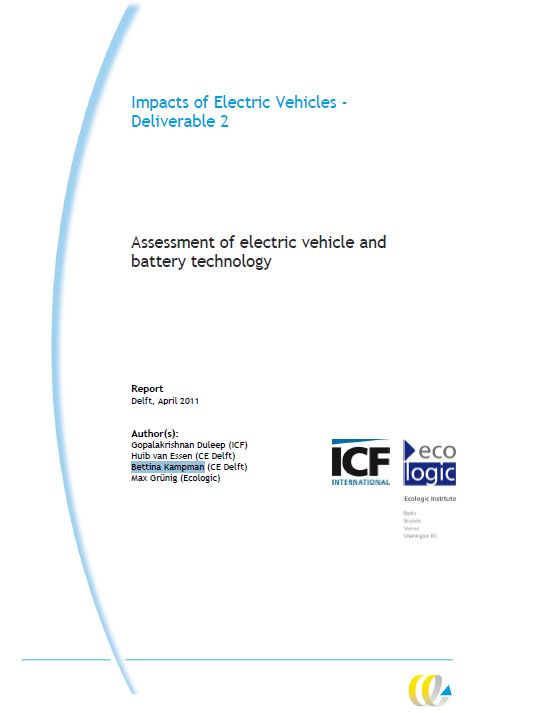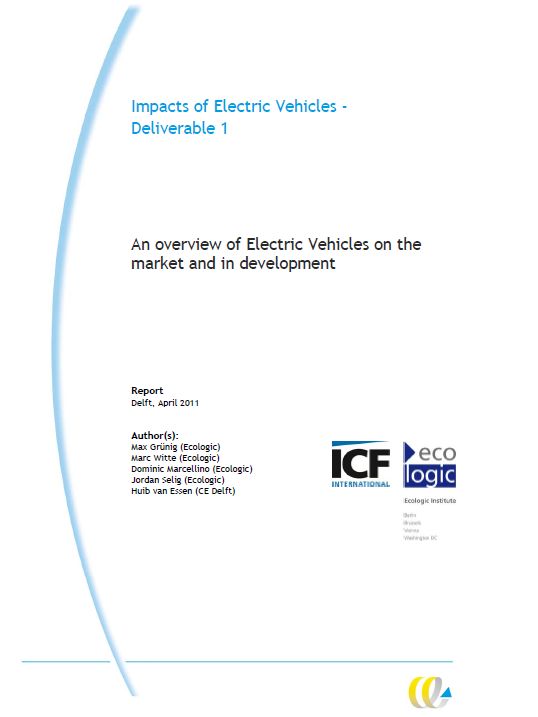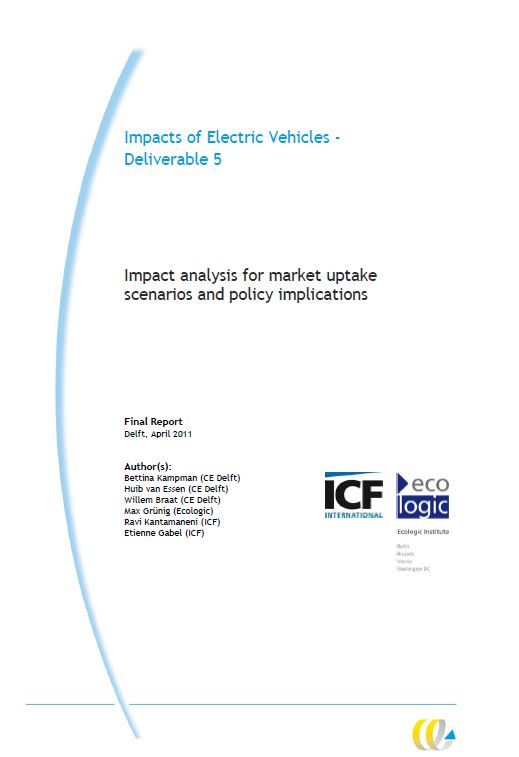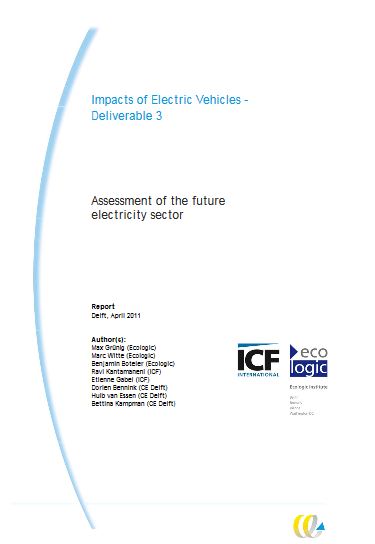Electric vehicles have the potential to make significant contributions towards achieving the EU’s climate protection goals in the transport sector. However, the environmental impacts of a large scale introduction of electric vehicles are still unknown. This project develops scenarios for the increased dissemination of electric vehicles in the EU until 2050 and formulates policy recommendations from these findings. The full report of this project is available for download.
Background:
In order to meet the long term climate objectives of the EU, a drastic reduction of transport related GHG emissions is needed. Transport is one of the few sectors that show a steady growth of CO2 emissions, resulting in an increase in its share of total CO2 emissions. Electric Vehicles (EV and Plug-in Hybrid Electric Vehicles PHEV) are promising technologies for drastically reducing the environmental burden of road transport. A DG Environment project identified electric mobility as the GHG reduction approach possibly having the highest reduction potential for passenger cars and light commercial vehicles in the medium to long term (2020-2050). At the same time, both EV and PHEV are still far from being proven technologies and the real reduction potential of electric mobility is also unclear.
For EU policymakers, it is important to get a reliable and independent assessment of the state of the art of these issues in order to develop a targeted and appropriate GHG reduction policy for transport.
Objective:
The aim of this study was to investigate the potential environmental impacts of a large scale market penetration of electric vehicles in the EU. The focus is on passenger cars and light commercial vehicles. The results of the study will help the Commission in their development of a climate protection policy for transport.
Organisation:
For this project, Ecologic Institute analysed current and future developments of the electric vehicle market. Additionally, the Institute investigated the EU’s current and future energy sector, placing special emphasis on the integration of renewable energies. Finally, Ecologic Institute translated the experiences gained in the modelling process into policy recommendations for European policymakers.
The summary report [pdf, 295 kB, English] of this project can be found here and on the CE Delft's website.
The results of the project are presented in the following reports.







